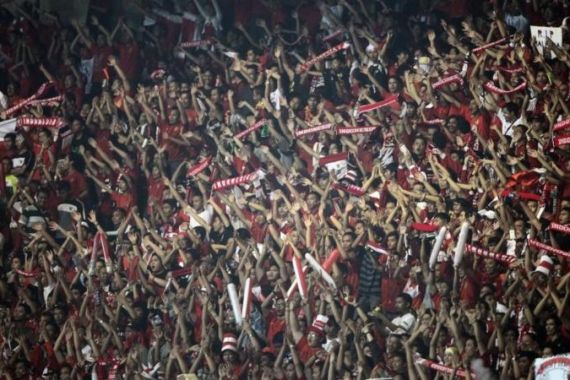The battles facing Indonesian football
Incompetence on and off the pitch has seen one of the most populous nations fail to deliver results on world stage.

In February 2012, Indonesia lost 10-0 to Bahrain in a World Cup qualifier, a result so one-sided that it prompted a FIFA investigation. It is hard to say which possibility was less hurtful for fans in the country: the fact that their team was either corrupt or incompetent.
But pain is a long-standing companion of Indonesian football fans and it seems that the more fans there are, the more pain there is.
Keep reading
list of 4 itemsHolders Man City go out of Champions League on penalties to Real Madrid
Barca crash out as Mbappe brace leads PSG to Champions League last four
Saudi reviews football fan rules after whip attack
“Indonesians are crazy about football,” former national team coach Alfred Riedl told Al Jazeera.
|
“The national team plays regularly in front of 90,000 fans and even during afternoon games on week days, the stadiums are crowded” Former Indonesia coach Alfred Riedl |
“The national team plays regularly in front of 90,000 fans and even during afternoon games on week days, the stadiums are crowded.”
If there was a World Cup for passion, the team would get there every time but as it is about competence on and off the field, then for the moment at least; it is not going to get anywhere near.
The fourth most populous nation on the planet has failed to qualify for the World Cup since 1938, failed to collect a single point in six games in the third round of qualification for 2014, failed to reach the 2011 Asian Cup and failed to get past the first round in the 2012 AFF Suzuki Cup, South-east Asia’s biennial tournament.
It is hard to look past former president of PSSI, the country’s FA, Nurdin Halid as the root of much that has gone wrong.
FIFA’s investigation into the Bahrain debacle should have started in Switzerland as the world governing body allowed the man to continue in his position despite the fact he was jailed for corruption during his presidency and was a prominent member of a political party.
Just like Spain’s rule at the top of the world ladder has seen tiki-taka influence many of those below, Nurdin’s reign from 2004 to 2011 inspired years of take-take.
Football divided
Corruption and cronyism were rampant. So bad it became with crowd violence, seasons dragging on for over a year, people not being paid, sponsors leaving and clubs losing money, that in 2010 a breakaway federation and league was set up in 2010, dividing football in the country in two.
The end of Nurdin, when FIFA finally ruled that he couldn’t stand for a third election (a saga in itself) didn’t spell the end of the problems.
When new bosses did take over PSSI, they embarked on a clear-out that had little to do with football. Their first major decision was to fire the well-liked Riedl for little more than the fact he was hired by the previous regime. It was a big blow for the national team.
 |
| Indonesia players talk to coach Alfred Riedl (C), who got news that he had been sacked from journalists [Reuters] |
“The new bosses at PSSI did not inform me,” said Reidl.
“I got the bad news from journalists. I was surprised because we had some success and won nine out of 11 games and only lost to Uruguay and Malaysia. The PSSI changed so many positions after they got power and the Indonesian national team performance went down.”
As did the position in FIFA’s rankings in which it sits at a record low of 170.
But the real low-point came in December 2012 with the death of Diego Mendieta. The heart-breaking story of the Paraguayan player, unpaid for four months by his club, dying alone in a Solo hospital as he could neither afford the treatment or a ticket home, was told around the world.
Unpaid wages – players were not the only ones to suffer with coaches and agents also found themselves out of pocket too often when doing business in Indonesia – had been a common refrain in the game. Players went on strike, there were deaths at stadiums and investment, already drying up, was further diluted by the two separate leagues.
FIFA had been making threats of suspension for some time and it was expected in December 2012 that Indonesia would eventually be kicked out until it could get its house in order. Yet, another stay of execution was given.
Perhaps this was what forced the two factions to vote at a stormy meeting in March to merge the two leagues and federations ready for the 2014 season. It is not yet time to relax however. Agreements have been made before and not adhered to.
And even if this one is, there is a lot of hard work ahead as was demonstrated earlier in April when an Indonesian team had to abandon an AFC Cup game in Hong Kong after its squad of 12 was reduced to six by injuries. It was another humiliation.
“The players in Indonesia are talented and are very nice guys,” said Riedl.
“But the problem is that the federations do not have enough patience. They need to start with a five to ten year plan. There needs to be better training for coaches and referees. And, as everywhere, they need to improve youth football.
“It all has to be done, not by talking but by doing.”